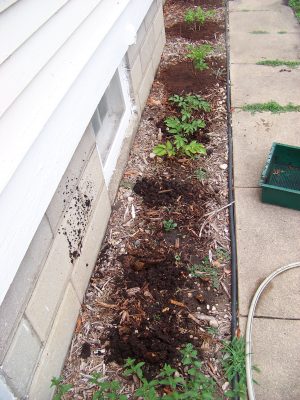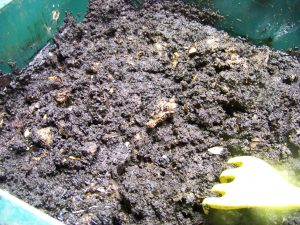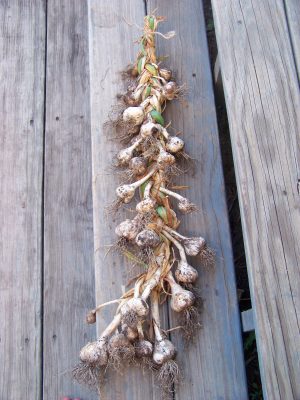It’s been a tough week in our little town, with reminders of how quickly life can change, and how strong the fabric of friendship and love in a community can be, and how precious the threads are that connect us. More than ever it feels necessary to at least try to ask, before proceeding with each act and word, “is this life-sustaining, positive, healing?” Against the human backdrop of change is the natural one: temperatures soar, my three rain barrels are depleted, soil pales and crumbles, more rain just won’t come. At least not that we can see. But the power of hope has been proven to us, lately, in other ways. We keep on.
And it’s always against the backdrop of whatever else is going on in our lives, and that we care about, that we garden, and we do the daily work of sustaining ourselves and our small patch of ground. We have to use our eyes, and try to see what people need, what the earth needs, what we need, and try to give it back, without a lot of fuss. And amazingly often, we can.

A couple nights ago, I harvested the first-ever load of finished compost from the bottom-most tray of my worm bin, which, by my count, was about four months in the making. Rich, black, and crumbly, it looked nothing like the original slush of squash and vegetable and fruit and coffee grounds that had been in that tray. There were still a few worms in it, lazing around happily although the compost looked finished to me, and so after trying to haze them down into a lower tray by exposing them to light, I took the tray out and scattered the compost in a narrow plot at the side of the house where I’ve been growing blueberry bushes and potatoes. Last spring I ripped out of this spot three old woody foundation shrubs that had been grounded miserably in a moonscape of rock over weed-suppressing plastic, and I never properly amended that soil, which is still light brown, crumbly, fake-looking. Yet I got potatoes out of it, and some volunteers I left in are coming back again. Amazing. And now they’ll be even happier. A year of rain and snow has helped. So did a trayful of rich black compost, worked in.

This seems like just the most ordinary of processes, apparently unrelated to anything beyond this yard. But working these pure nutrients back into hungry ground, you see the great gears that turn the world: change and regeneration and the fact that life returns, over and over again. It is good to be reminded of this.
I wish I had so much more of this compost to give back to this soil that gives so much to me and, through me, to others – a quiet place to clear my mind, fresh greens for a stir-fry, a braid or two of just-harvested garlic (a little messy at first, but you get the hang of it pretty fast), flowers to brighten a room in need of them, a bouquet of lemon balm and mint tossed into bathwater for an aromatic soak.


Simple, good things – small, good things, to quote Raymond Carver. They matter, especially when they are shared. And when they hook you into a cycle of growing, giving, sustaining, and being sustained that lets you enrich your own life and be grateful for all you have been given and for all that you can give to those you love.
Lives are built this way, and communities, and families, and better worlds, by these simple acts: feed, share, renew. As simply as braiding harvested heads of garlic: lay one strand over the next, and weave, and lift and incorporate one more, until everything belongs. Keep working, keep praying, keep hoping. It makes a difference.